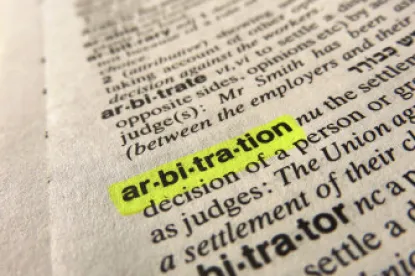McCullough v. Royal Caribbean Cruises
The US District Court for the Southern District of Florida held that an insurer could not force arbitration of a coverage dispute raised in the context of a direct claim for bad faith by an injured third-party claimant, where the arbitration provision in the insurance policy is governed by the Convention on the Recognition and Enforcement of Foreign Arbitral Awards (the “Convention”). The case involved a tragic zip-line accident during a day-trip on a Royal Caribbean cruise, leaving the claimant quadriplegic. The claimant brought a bad faith claim against Royal Caribbean’s insurer, AIG, for failure to settle in good faith on behalf of its insured, despite the fact that AIG had consistently contested coverage. As an initial matter, the court held that the bad faith claim was premature absent a finding of coverage.
But AIG also argued that the third-party claimant had to arbitrate the question of coverage based on the dispute resolution provision in Royal Caribbean’s policy. The claimant argued that they were non-signatories to the insurance policy and, therefore, could not be forced into arbitration. AIG’s argument was premised on the idea that in a third-party bad faith action, the claimant steps into the shoes of the insured who is necessarily a signatory to the agreement to arbitrate. The claimant responded that they are neither signatories to the insurance policy nor assignees of the insured’s rights and therefore they have not assumed the obligation to arbitrate. The court agreed with that argument. “A party cannot be required to submit to arbitration any dispute which he has not agreed so to submit.” The court also distinguished compelling arbitration under the US Federal Arbitration Act, which recognizes that an estoppel theory can be used to bind non-signatories to arbitration, with compelling arbitration under the Convention, which does not. “[B]ecause there is no agreement signed by both parties, the [claimant] cannot be compelled to arbitrate.” The court therefore stayed the action until “coverage under the Policy has been established.”







 />i
/>i

